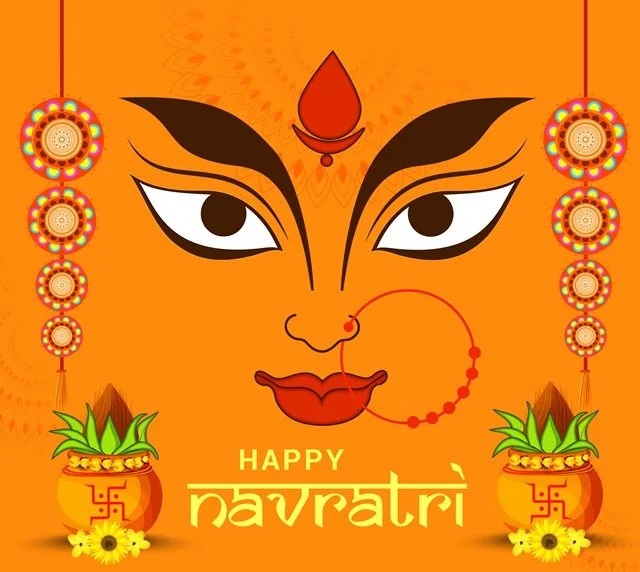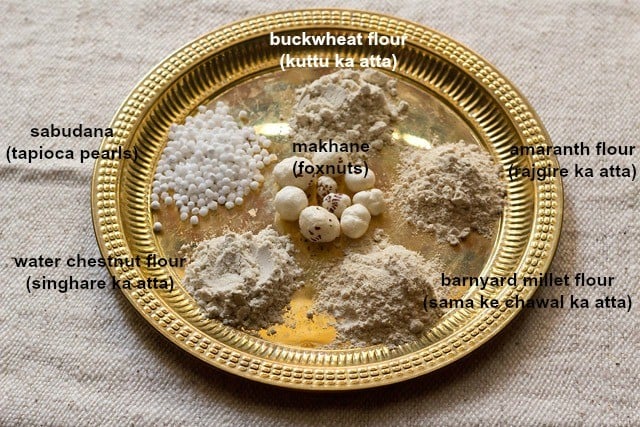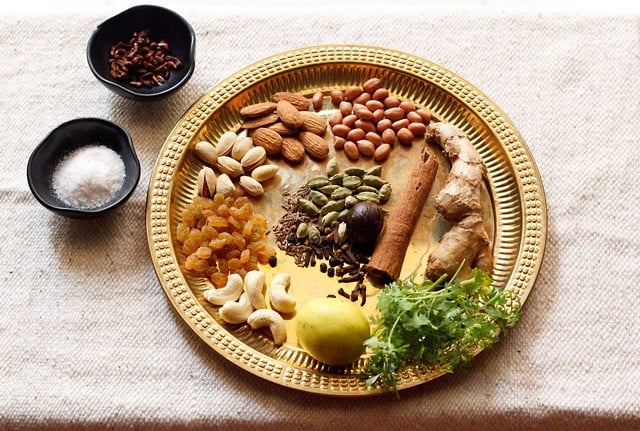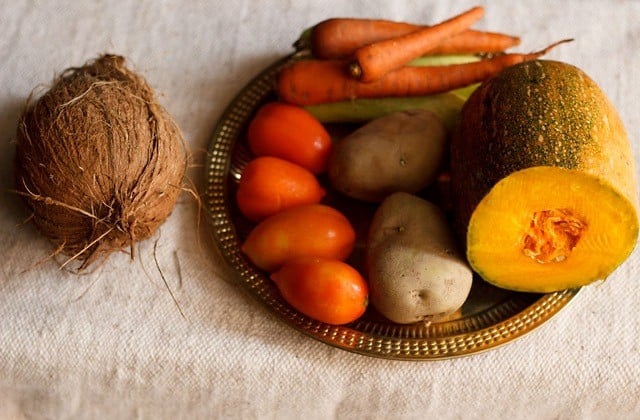
The season of festivities is here. It’s the season of receiving blessings in abundance from the Holy Mother Goddess Maa Durga in her 9 divine forms. It’s the season for which many of you wait eagerly. The 9-day festivities make the followers abstain from specific things and food items in their diet.
Fasting when done in an appropriate way surely, makes a lot of healthy difference to your mind and body. If you observe your fast with a few precautions, it is even better. After all, you need to ensure too that fasting is not having any toll on your body. That means with your fasting you will also be able to enjoy the festivities even more.
Sharing a few easy yet vital tips if followed correctly will really help you to have comfortable fasting throughout these 9 days.
Stay hydrated.
This is very important indeed. Whether you are fasting or not hydration levels must always be kept in check. Having lots of water is important for proper body functioning. Also, since there is plenty of restrictions on what you can drink during the fasting days, hydrating drinks including plain water, coconut water, lime water, milk, and fruit juices can take good care of your nutrition. Do not go for drinks such as coffee and tea in excess which can not only dehydrate you but sometimes prolonged gaps in meals may also cause stomach-related issues like acidity and gastritis.
Refrain from sugar
While you are observing fasting, what you can possibly do is refrain away from consuming refined sugar as much as you can. Sugar can often be quite unhealthy and processed. If you have, go for natural sugar products such as sugarcane, and jaggery, and even sweet taste fruits that are quite healthy for you.
Do not overeat.
While you keep a check on your food intake during the fast, make certain you do not go overboard. Everyone tends to eat more food when people are fasting to make sure that they stay full but doing so could be dangerous. If you are not mindful and watch what you eat, it not just contradicts the purpose of your fast but also makes for chances your stomach may go upset.
Have a healthy snacking
Because of the fact, that you are fasting, you tend to feel hungry at odd times. It doesn’t imply that you eat unhealthy things to put a stop to those cravings. Go for healthy snacking alternatives such as makhana (foxnuts), sweet potato fries, nuts, fruits, etc. They are all also, very nutritious for you.
Consume fibre rich foods
During any sort of fast, it is essential to eat fibrous food items which take longer to digest and keeps one stay fuller for longer. They also take care of your cravings. Good fibre content can easily be found in vegetables such as pumpkin, bananas, arbi, etc.
Avoid packaged and greasy foods
With several varieties available in the market, one may tend to binge on market-bought sweets, snacks that are often not healthy. They are usually, processed and made out of sub-standard, refined oil specifically, during the festival times. This is not how you are supposed to be fasting in Navratras.
Also, stay away from having greasy food this fasting season. They might seem tempting to eat but has quite unhealthy ingredients which are not at all nutritious. They also have the ability to make you feel bloated. Rather have a fruit or vegetable bases chaat instead of a deep-fried snack to take care of your cravings.
Sleep adequately and do not exert yourself
During any fasting season, your body is undergoing detox and it required plenty of rest. Hence, make certain you sleep for at least 7-8 hours every day. Try to relax and do some mindful meditative exercise to fully detoxify your body.
Healthy Food options For Navratri Fast.

Flours and grains allowed/ Healthy Carb options-
- Singhare ka atta (water chestnut flour) – You can make paratha, pakoras, halwa.
- Kuttu ka atta (buckwheat flour) – You can make rotis
- Rajgira ka atta (amaranth flour) and rajgira (amaranth) – You can make roti or thalipeeth. Roasted rajgira can be had mixed with fruits, porridge and even ladoo. From amaranth grains you can also make kheer
- Sama ke chawal ka atta (barnyard millet flour) – It can be used to make Vrat ke uttapam, idli, dosa.
- Vrat ke chawal (barnyard millet) – You can make pulao, khichdi, Kheer, dalia, idli dosa, upma or just plain steamed.
- Arrowroot flour or paniphal flour – Used as a thickener and binding agent.
Spices and herbs allowed- for flavor and taste

- Cumin or cumin powder ( jeera or jeera powder )– You can add them to your curry or veggie dishes or make Jeera Aloo.
- Black pepper powder
- Rock salt (sendha namak) – Instead of regular salt add rock salt in any dish you prepare while keeping navratri vrat.
- Spices like green cardamom (choti elaichi), cloves (laung), black peppercorns (saboot kali mirch), cinnamon (dalchini) and nutmeg (jaiphal)
- Dry pomegranate seeds (anardana) – You can make chutney or raita or use it as a souring agent.
- Ginger – both fresh root as well as dry, including dry ginger powder
- Green chilli or hari mirch
- Lemons or lime
- Ajwain or carom seeds
- Coriander (dhania) and mint leaves (pudina) and curry leaves (kadi patta)
- Dry mango powder (amchur powder), chaat masala, red chili powder – some folks include and some don’t
- black salt (kala namak) – some folks include and some don’t
Vegetables Allowed in Navratri Fast- Fibre component

- Potatoes – you can opt steam form instead of fries/fried chiwda.
- Pumpkin – You can make sabji,halwa, Khatta meetha kaddu sabzi or Pakoras.
- Sweet potato – You can make chaat
- Colocasia (arbi or kachalu) – You can make many dishes from arbi like Dahi arbi, Arbi tikki, Arbi cutlet.
- Yam (suran or jimkand or regular yam or purple yam) – You can make suran ki sabzi.
- Plantain or Unripe Banana – You can make sabzi
- Unripe or semi ripe papaya – You can make papaya halwa and salad from raw papaya.
- Tomatoes – Generally tomatoes are added to curries or sabzi. Tomato sauce and chutney is also made. But some people don’t use tomatoes too.
- Veggies – Some folks also use spinach (palak), bottle gourd (lauki), cucumber (kheera) and carrots (gajar).
Other food or ingredients allowed- Protein component
- Makhana or phool makhana – You can make kheer or roasted makhana, Aloo makhana, rotis or a simple makhana sabzi.
- All nuts & dry fruits
- All fruits – Make fruit chaat, fruit salad, fruit raita, mix Fruit lassi
- All milk products like paneer, curd or milk
- Sugar, honey, or jaggery
- Tamarind (imli), kokum, lemon juice, yogurt – these can be used as souring agents.
- Tea, Coffee, green tea, Herbal tea, Nimbu paani, jeera water is allowed.
Besides, make sure You should not exert yourself and put excess pressure on your body during these 9 days. Celebrations and fasting together could drain out your body. Do not remain hungry for long and keep munching on a fruit something from where your body will continue to get energy. If eaten balanced and portioned the fasting period will help you regain health and energy and detoxifies the system- along with prayers and meditation and with Devis Blessings.
